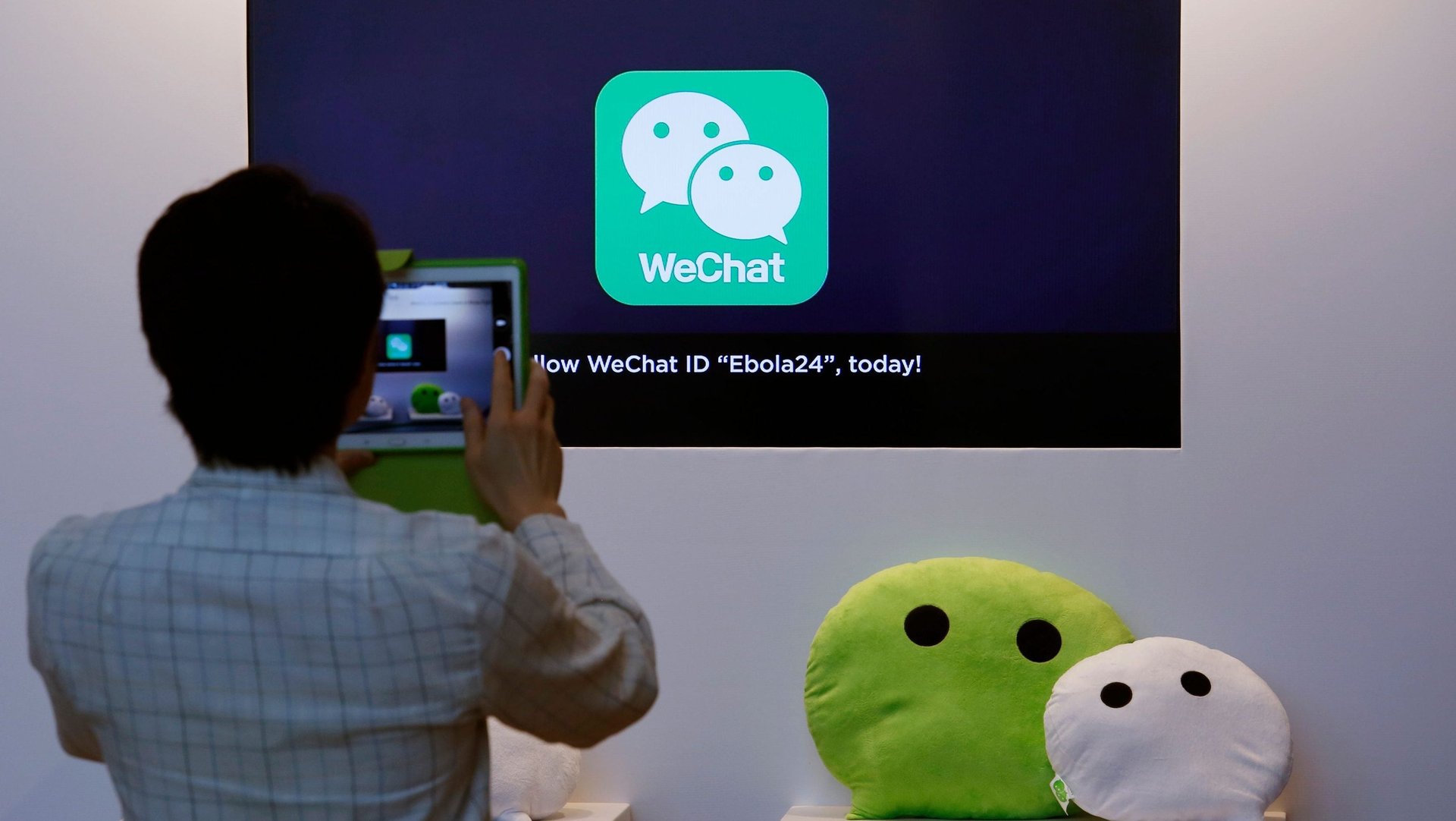The blog China turned to for “toxic chicken soup for the soul” has shut down
Mimeng, seen by many as the queen of personal-development clickbait on the WeChat app, this week shut down her hugely popular four-year-old blog—possibly because its content was increasingly at odds with the “positive energy“ China wants to see spreading online.


Mimeng, seen by many as the queen of personal-development clickbait on the WeChat app, this week shut down her hugely popular four-year-old blog—possibly because its content was increasingly at odds with the “positive energy“ China wants to see spreading online.
Started by 42-year-old Ma Ling, a former journalist, who adopted the pseudonym Mimeng, the blog has been surrounded by nearly constant controversy since she began writing about young people’s lives in 2015. With around 14 million followers on its WeChat public account (similar to Facebook Pages), Mimeng became known for posts offering cold get-ahead advice, crude essays on sex and relationships—one popular post was titled “I work hard in order to afford a gigolo (link in Chinese)—and stories about the downfall of people who should’ve made it. Over time, it expanded into a team of writers and multiple accounts. On microblogging platform Weibo, articles about the blog’s closing have gathered more than 170 million views (link in Chinese) as of today (Feb. 22).
Mimeng’s end on Feb. 21 came after an outcry over the authenticity of a recent hugely popular first-person article that, like much of its fare, tapped into China’s economic and social anxieties. Titled “The death of a top academic scorer from a poor family” (一个寒门状元之死 ), it was published at the end of January, and within a day, it garnered more than 100,000 views, a benchmark for popularity on WeChat. But it ran into trouble when many accused the writer of making up the story to attract traffic, and readers realized the account that published it was associated with Mimeng. State-owned People’s Daily (link in Chinese) called it “shameless” to concoct tragic tales to get readers. WeChat deleted the article the day after publication for violating content rules.
Mimeng didn’t specify what caused the shutdown, but the backlash against the article—and an increasingly tightly regulated internet—offer some clues, China media analysts say.
“Authorities will take care of ‘trouble makers’ who cause debates online—this tells you there’s only one kind of voice that can exist, which is the ‘positive energy’ approved by the officials,” said Luqiu Luwei, a media scholar at the Hong Kong Baptist University.
A true story, or a fake?
In the Jan. 29 story, the author depicted herself as a city girl from a well-off family while her classmate, Zhou Youze, the main character of the story and the author’s high school classmate, was a hard-working person who died of cancer at the age of 24.
Zhou came from a modest family from China’s rural area, such that a fake Adidas down jacket would cost his family two weeks’ food spending. He ranked first in science during China’s grueling national college entrance exam and later went on to become an accountant of high integrity—he refused to take bribes from his boss who asked him to manipulate the numbers. He worked three part-time jobs in order to support his sister, but died with just 3,700 yuan ($500) of savings at the end of his life. Zhou’s death made the author—a woman who can deal with demanding investors and smoothly navigate society’s unspoken rules—reflect on her own life, and how she’s lost herself chasing money and power.
The author said Zhou was a pseudonym for a real person (link in Chinese), and included photos of their high school with the piece. Yet many said they couldn’t verify the details—for instance, a user on Zhihu, a Quora-like site, said he went through public records of the national exam during the period the author mentioned, but couldn’t find a matching score (link in Chinese) for Zhou’s result.

Soon after criticism flooded in, Mimeng shut down her Weibo account, which has 2.6 million followers, and suspended WeChat updates for two months in early February, saying the company would spend time exploring how to be a more responsible media outlet and deliver more “positive values.” In the past, she has been temporarily suspended from updating by platforms for other articles considered too sensational.
Yet suddenly, the WeChat account was closed. Soon after, online news iFeng and Bytedance-owned news aggregation platform Jinri Toutiao also shut down Mimeng’s accounts.
“We must make those pay a heavy price for seriously affecting social stability,” read iFeng’s statement (link in Chinese).
Making money by selling anxiety
Mimeng offered something China’s internet users call “toxic chicken soup for the soul” (link in Chinese) in reference to the popular, rose-tinted self-help books. The phrase is used to describe content that seems like it’ll be good for you but is actually very, very bad—for example it’s (barely) disguised marketing, or misinformation.
As one Zhihu user wrote (link in Chinese), when positive chicken soup for soul stops attracting readers, catering to people’s sense of envy and grievance works, because people love reading about the downfall of people such as professors and students who are at the top of the social pyramid. “Parents and teachers love comparing the audience [who read such articles] with that group of people… The more hatred there is, the bigger the audience,” the user wrote.
In one sense, Mimeng’s success is connected with sang culture, the feelings of hopelessness and pressure that many young people in China say they experience in the face of immense competition. Articles that talk in a highly emotive way about class divides, internet startups, success, and struggle are resonating with young people, Wu Qiang, an independent political commentator told BBC Chinese (link in Chinese).
One post titled “It’s a bit shameful to admit that my assistants are only making 50,000 yuan a month,” drew a lot of readers, since that’s actually an incredibly good salary, particularly for people with little experience. Mimeng explained the headline by saying (link in Chinese) how her two assistants always deliver beyond her expectations, making her feel she just can’t pay them enough. “A lot of people ask what makes them good enough to make 50,000 yuan a month just two years after graduation? Of course, it’s their capabilities, aspirations, and flattering abilities.”
Her ability to know what would make people click made for a successful business. Mimeng’s WeChat account reportedly charged as much as 750,000 yuan ($110,000) for a mention in an article. One story, “Do you know why you are poor? Because you like saving money” appeared to be little more than a marketing vehicle for a shopping event by JD.com, China’s second-biggest e-commerce company.
As part of the backlash, after the January article went viral, some people began judging their social circle by looking at how many friends subscribed to Mimeng’s account (link in Chinese)—with fewer subscribers meaning a more sophisticated circle.
“We encourage methods that use proper marketing and give real information to the audience, but if you are only creating conflict, chasing trending topics, or just playing on the sentiments of the general public, you will ultimately disappear,” one Mimeng critic wrote on Weibo (link in Chinese).